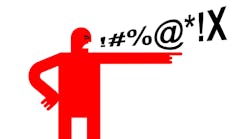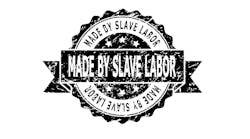On May 1, the National Labor Relations Board (NLRB) issued a decision that restores federal labor law protection for employee misconduct when it occurs during what the board decides is legally protected concerted activity that is labor related.
Workers are given broad free speech protections under Section 7 of the National Labor Relations Act (NLRA), which covers their rights to express opinions (usually negative, of course) regarding wages and working conditions. Until the Trump era, the NLRB had confirmed that this protection included abusive and profane language, which employers could not ban or take actions that could include resorting to disciplinary action.
The Trump-era board majority found an employer could discipline or discharge employees for this kind of misconduct—even in cases where it happened in connection with protected concerted activity—as long as the protected activity was not the motivation for the employer’s actions, points out attorney David Phippen of the law firm of Constangy Brooks Smith & Prophete.
The Biden-appointed NLRB has now chosen to return to the position that it gets to decide ultimately whether the worker misconduct at issue is severe enough—in the board’s subjective view—to be unprotected activity under the NLRA. This could put employers in an uncomfortable position when incidents arise.
“There is no bright line for employers,” Phippen says. “Even when it comes to egregious misconduct such as use of racial epithets, sexual harassment, threats of violence, threats of damage to property or person, or abusive conduct or obscene comments and gestures, employers may be at risk if they take action based on the employee’s behavior—even if the action was taken solely because of the misconduct and not because of the protected concerted activity.”
According to Phippen, this change is something that employers need to keep in mind as they move forward. “Employers may want to be more circumspect in their decision making when considering discipline or discharge for employee misconduct that takes place along with even arguably protected concerted activity,” he says. “We expect this board majority to take a broad, if not an almost all-encompassing, view of what constitutes protected concerted activity.”
This interpretation of the law predates the Biden administration and was embraced by the Democrat-majority board under President Obama as well. Although a handful of board precedents do exist, that case record doesn’t offer employers any clear guidelines about how they can act, he explains.
NLRB Acting Consistently
“In recent years, the board has required employers to reinstate former employees who have undisputedly engaged in offensive behavior or abusive conduct, not because of any proven motivation or discriminatory animus against protected concerted activity, but simply because the offensive behavior accompanied protected concerted activity,” Phippen notes.
Attorneys Scott Beightol, Audrey Luzader and Kevin Terry of the law firm of Michael Best & Friedrich says this coincides with the board agenda set by NLRB General Counsel Jennifer Abruzzo, who has taken point on changes made to favor organized labor.
“Unions and plaintiff’s counsel will likely be keenly aware of this shift in board law,” they added. “Employers faced with inappropriate and offensive conduct by their employees should be mindful of these ‘return to familiar’ standards and seek counsel prior to issuing disciplinary action, especially if considering suspension or termination.”
Depending on the circumstances, employers may be forced to continue employing individuals who have committed abusive or threatening conduct that would have resulted in termination absent protected Section 7 activity. Likewise, employers may be limited in other disciplinary action against employees who commit misconduct in connection with such activity.
Republican board member Marvin Kaplan’s minority dissent pointed out that protected misconduct now may extend to making threats against supervisors, posting social media attacks against managers, or yelling racial slurs at other employees.
Attorneys Jonathan Spitz, Richard Vitarelli and Laura Pierson-Scheinberg of the law firm of Jackson Lewis observe that Kaplan also highlighted that this change creates significant conflict between previous board law and federal and state equal employment opportunity laws that ban discrimination and harassment in the workplace.
“Employers must consider employee misconduct in the context of whether it occurred during protected concerted activity before implementing disciplinary measures,” the attorneys emphasize. “Conduct previously considered threatening, intimidating, or harassing may be found to be protected by the NLRB.”
As Phippen puts it, “With the board majority’s resurrected standards, employers are in the unenviable position of trying to provide a safe, civil and productive workplace, while having to tolerate relatively high levels of employee misconduct. Anything short of actual violence or unambiguous, direct threats of violence is potentially within the scope of the special protection carved out for misconduct that accompanies any type of protected concerted activity.”
In addition, he concludes, “As is too frequently the case, it is possible that the board’s decision will harm employees the most.”




